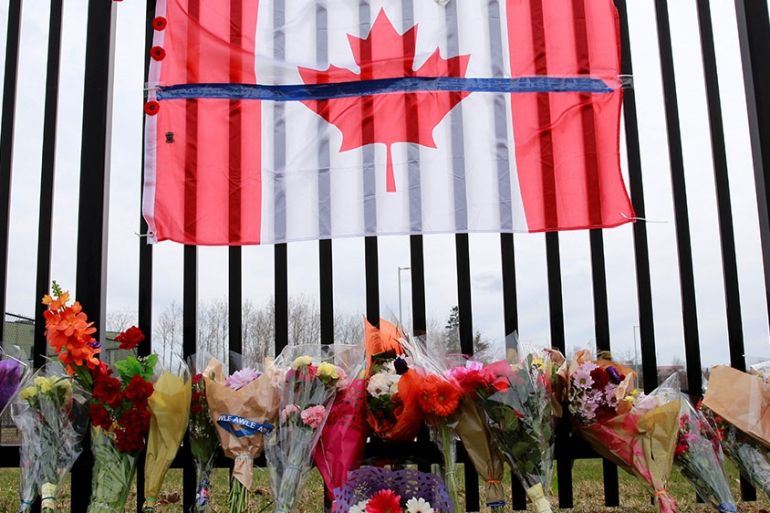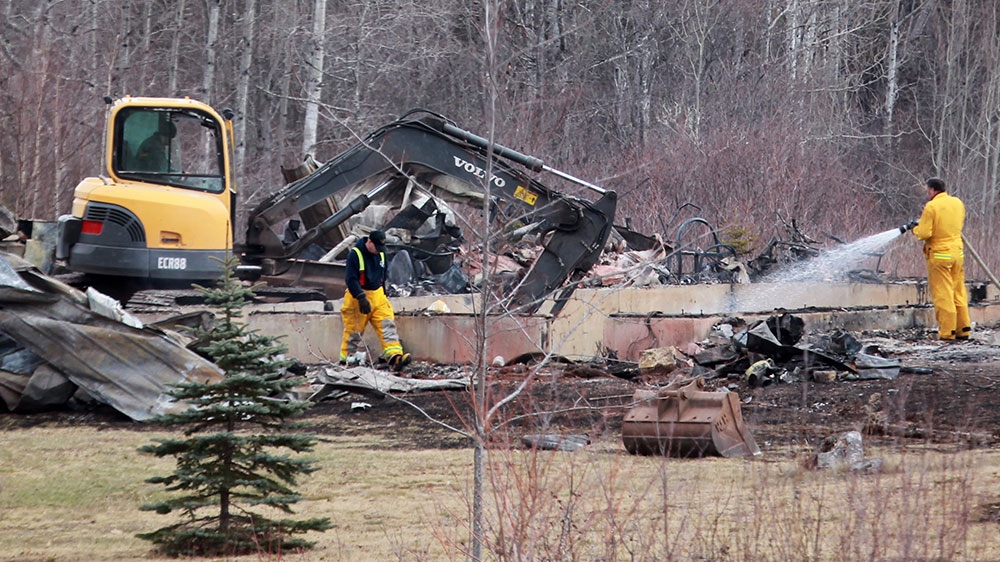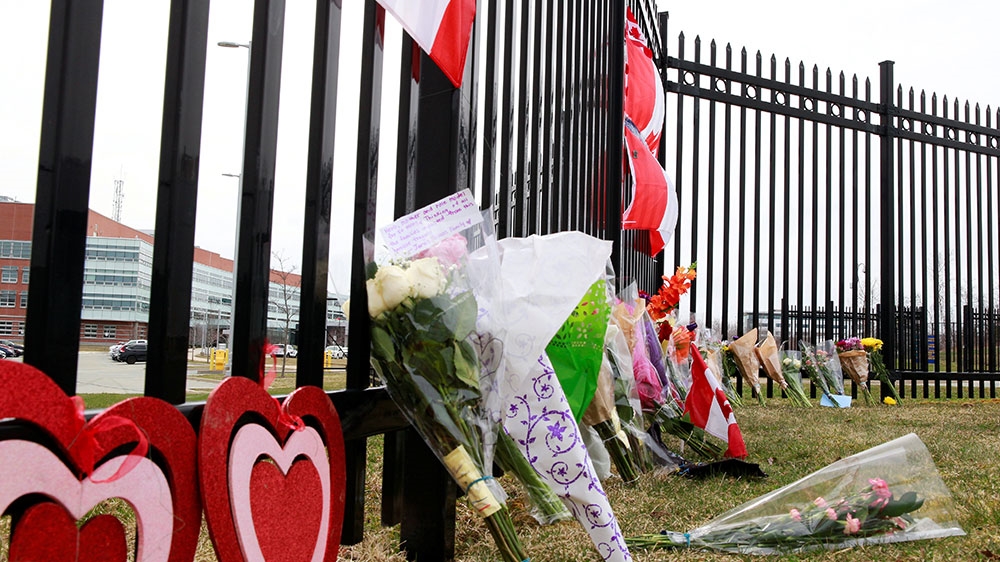Victim death toll from Canada’s worst mass shooting rises to 22
The suspected gunman also died after he went on a rampage in rural communities across the province of Nova Scotia.

The victim death toll from the worst mass shooting in Canadian history has risen to 22, federal police said in a statement on Tuesday.
Earlier, authorities had said at least 18 people were killed in the weekend attack, but officials had warned the death toll would likely to rise as they investigated more than a dozen crime scenes and combed through the wreckage of fires the gunman allegedly set.
Keep reading
list of 3 itemsGovernments turn to tech in coronavirus fight – but at what cost?
Indigenous fear Canada work camps will be coronavirus incubators
The Royal Canadian Mounted Police (RCMP) said they have recovered remains from some of the locations of the fires.
As fears mounted that more victims would be found in burned-out homes, a young man said that his grandparents were missing and believed dead after their log cabin was set ablaze during the attack.
Justin Zahl said he finally heard from police after frantic calls for information and after seeing images of his grandparents’ home in the rural town of Portapique burned to the ground, with their cars in the driveway.
It was not immediately clear, however, if the remains police said had been found Tuesday included those of his grandparents.
Zahl told The Associated Press news agency he last heard from his grandmother early Saturday evening via iMessage on her iPad.
“They were angels,” he said, adding that the couple were like parents to him and his brother. “He was the smartest man I knew, and could hold a conversation with anyone.”

He said John Zahl, in his late 60s, and Elizabeth Joanne Thomas, in her late 50s, lived in Albuquerque, New Mexico, before retiring to their dream home in Nova Scotia in 2017 after falling in love with the place on a visit.
Officials said the suspect, identified as 51-year-old Gabriel Wortman, also died. Authorities did not provide a motive for his 12-hour rampage.
Authorities said Wortman wore a police uniform and made his car look like an RCMP cruiser, allowing him to travel easily within a 30-mile (50-km) area around Portapique, where the rampage began late on Saturday. A police officer was among those killed.
Police teams were spread out across 16 locations in central and northern Nova Scotia.
Several bodies were found inside and outside one house on Portapique Beach Road, authorities said. Bodies were also found at other locations in Nova Scotia and authorities believe the shooter may have targeted his first victims but then began attacking randomly as he drove around.
Authorities believe Wortman acted alone. RCMP Commissioner Brenda Lucki said he was not well known to police. She said police were still studying the crime scenes to determine what weapons were used.
Public emergency alert?
As the attacks unfolded, police warned residents in the neighbourhood to lock their doors and stay in their basements. People in the town, like those in all of Canada, had been adhering to government advice to remain at home because of the coronavirus pandemic and most of the victims were inside homes when the attack began.
But no wider warning was issued.
“There should have been some provincial alert,” said David Matthews, who heard a gunshot while he was walking with his wife on Sunday. Shortly after they returned home, their phone started ringing with warnings from friends that there was an active shooter in the neighbourhood, he said.

Cheryl Maloney, who lives near where one victim, 54-year-old Gina Goulet, was killed, said she was likely saved by her son, who messaged a warning Sunday morning: “Don’t leave your house. This guy is at the end of your road and he’s dressed like a cop.”
“I really could have used that provincial warning, as I walk here all the time and I’ve been in the yard all week,” Maloney said.